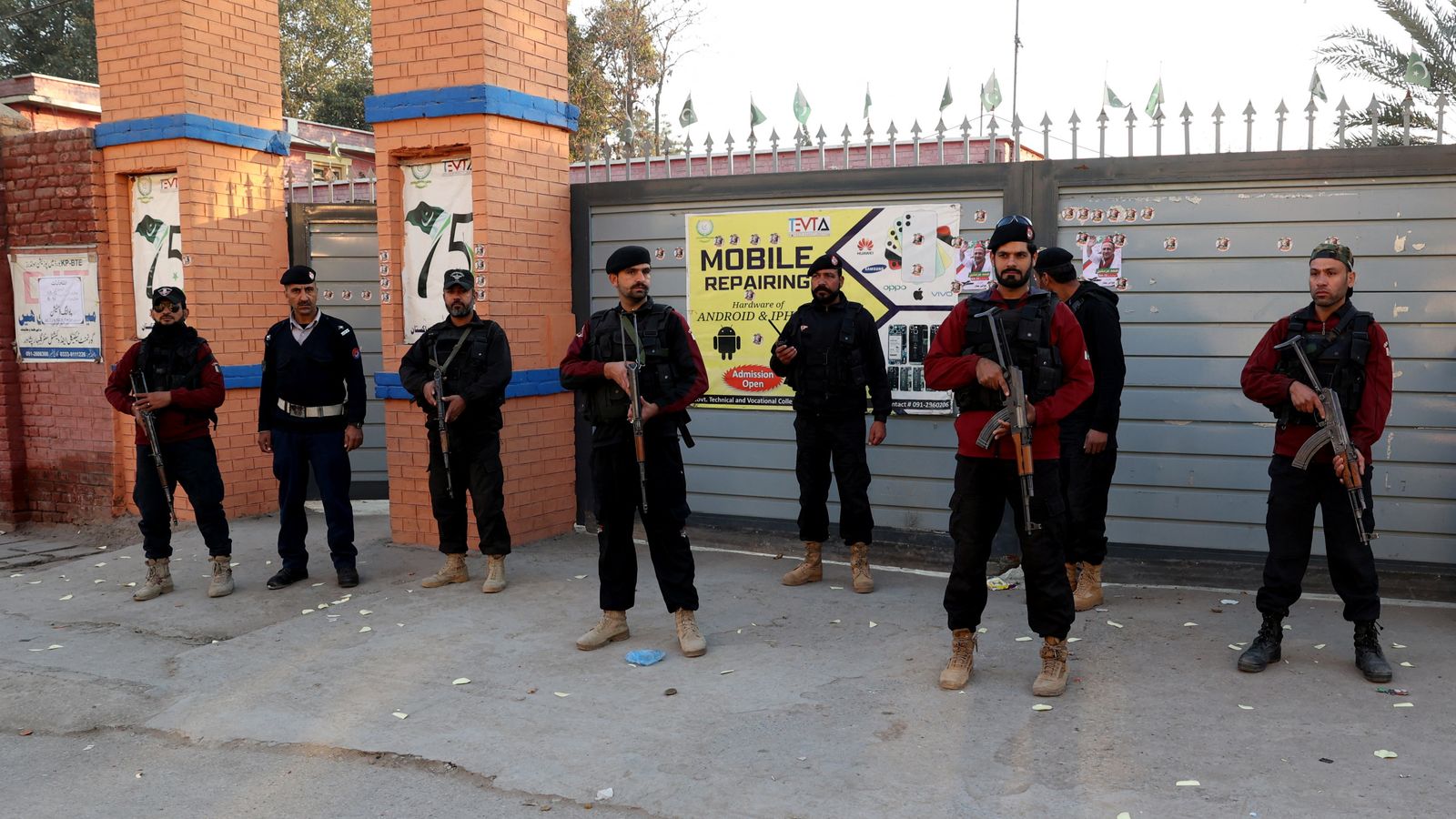Polling stations have opened in Pakistan in a general election which has already been marred by violence and allegations of fraud.
On the eve of Thursday’s election, bombs struck two political offices in southwestern Pakistan, killing at least 30 people.
Tens of thousands of police and paramilitary forces have been deployed at polling stations to ensure security.
Mobile phone service has also been suspended across the country in what the government has described as a “security measure”.
Explained: The problems facing Pakistan as voters go to the polls
Please use Chrome browser for a more accessible video player
“As a result of the recent incidents of terrorism in the country precious lives have been lost, security measures are essential to maintain the law and order situation and deal with possible threats, hence the temporary suspension of mobile services across the country,” Pakistan’s interior ministry said in a post on X.
Tensions have been high in the country ahead of the vote.
Ex-cricketer-turned-politician Imran Khan, founder of the Pakistan Tehreek-e-Insaf (PTI) party and the country’s former prime minister, remains the most popular politician in the country, according to polls.
However, last week, Khan was handed multiple prison sentences over a series of charges, among them corruption, leaking state secrets, and breaking the country’s marriage laws, and was banned from taking part in the vote.
Khan’s initial arrest last year sparked violent protests in Pakistan.
The 71-year-old, who was ousted from power in a no-confidence vote in April 2022, has claimed the charges to be politically motivated.
His PTI party has also claimed its candidates have been denied a fair chance at campaigning in the run-up to the vote.
Please use Chrome browser for a more accessible video player
Read more from Sky News:
US drone strike in Baghdad kills Iran-backed militia commander
January 2024 was hottest on record, scientists say
Meanwhile, several groups, including the Islamist militant Pakistani Taliban and separatist groups from Balochistan, who oppose the Pakistani state, have carried out a spate of attacks in recent months.
As many as 44 political parties are vying for a share of the 266 seats that are up for grabs in the National Assembly, or the lower house of parliament.
Be the first to get Breaking News
Install the Sky News app for free
An additional 70 seats are reserved for women and minorities in the 336-seat house.
Whoever forms the government of the nuclear-armed nation will face huge challenges, from containing unrest, dealing with a military that wields considerable influence over Pakistan’s political system, overcoming the country’s ongoing economic crisis, and calming rising tensions with neighbours, including India.




